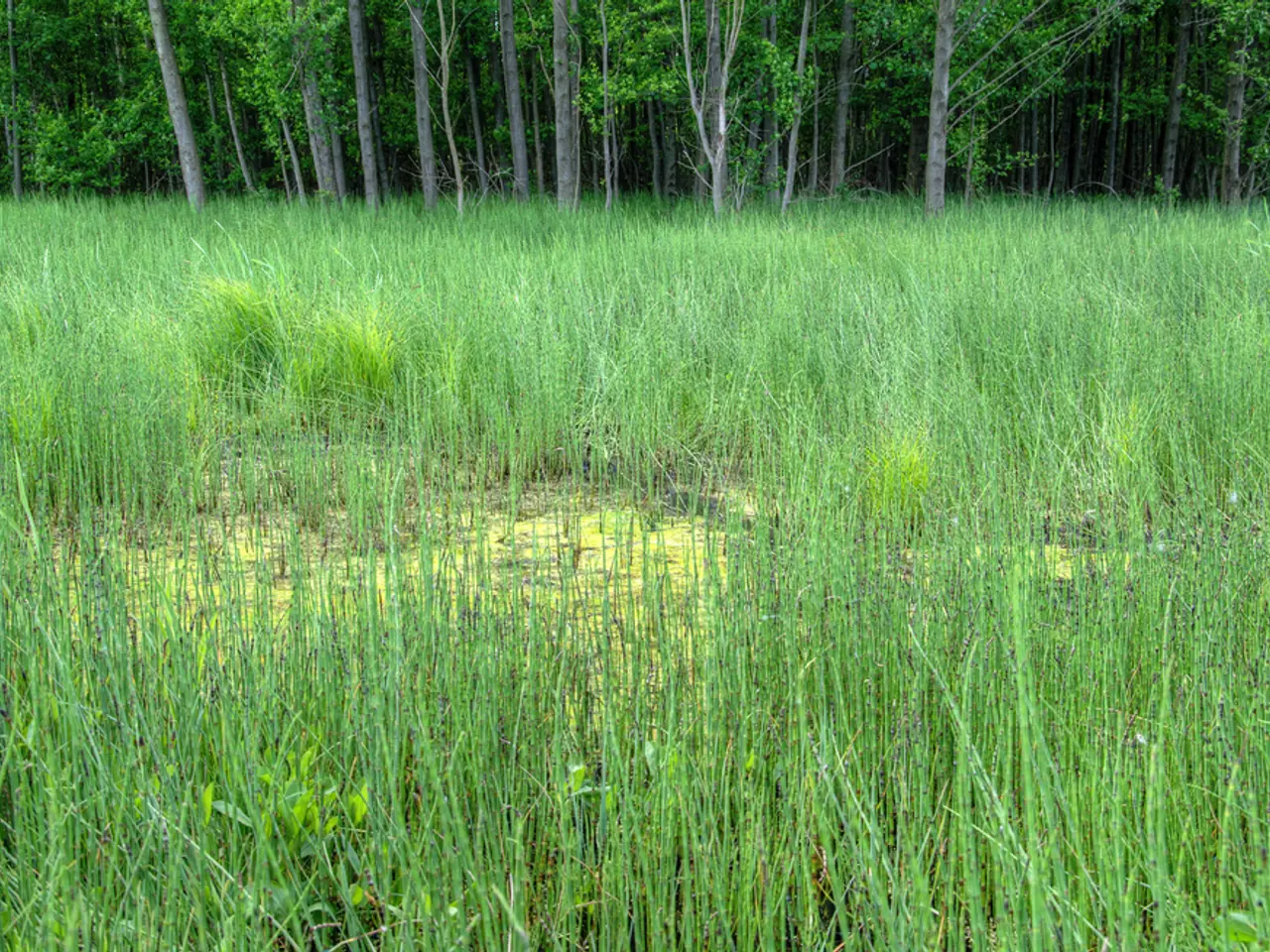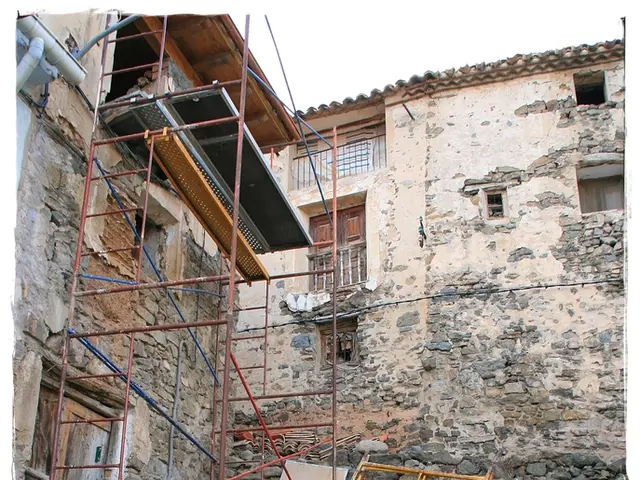Dismissing the EU's prevailing portrayal of Ukraine's expansive agricultural enterprises
The accession talks between Ukraine and the EU promise to be lengthy and challenging, with agriculture being a particularly contentious issue. The EU deal struck with Kyiv over the summer aimed to improve quotas for Ukrainian exports, but French President Emmanuel Macron has pushed for tighter quotas on Ukrainian cereals to appease his own farmers. This move has sparked concerns among Ukrainian producers, with Ihor Shyliuk, a producer, expressing skepticism about the improvement of quotas under the deal, claiming that politics will continue to outweigh economics in the EU's farm trade. The debate in Brussels often overlooks the complexity of Ukraine's agriculture. Reducing it to a threat that could crush EU farmers oversimplifies the situation. Ukraine's farm economy has adapted during the war, with producers focusing more on processed goods such as sunflower oil, poultry, and sugar, which already make up nearly half of agri-food exports. Ukraine's vast fertile land has long made it the 'breadbasket of Europe,' but many in the EU see this as a threat. The war has nudged Ukraine's farm economy to adapt, and the resilience of Ukrainian farmers, including Oleksandr Hordiienko, a 58-year-old farmer from Ukraine's southern Kherson region, who was killed by a drone strike while driving across his war-scarred fields, symbolizes this resilience. Specific Belgian farmers and politicians collaborating with the Ukrainian agri-lobby UCAB are not publicly detailed, but such cooperation can influence EU agricultural policy by promoting Ukraine's interests, potentially affecting subsidies, trade agreements, and regulatory standards within European agriculture. Ukraine's mega farms, such as TAS Agro, controlled by Anton Zhemerdeev, which spans 80,000 hectares across five Ukrainian regions, have been a subject of controversy within the EU. Hungarian ministers have cast Ukraine's accession to the EU as a threat to EU farm subsidies. Polish farmers' border blockades over Ukrainian grain imports have soured public opinion on Kyiv's war efforts. Despite the controversies, nearly 4 million households work the land in Ukraine, cultivating over 6 million hectares. These farms and plots produce a significant portion of Ukraine's food, including 95% of potatoes, 85% of vegetables, 80% of fruit and berries, and three-quarters of milk. The top 10 holdings in Ukraine control hundreds of thousands of hectares, but without the smallholders, Ukraine's villages would have starved long ago. The war has taken a toll on Ukrainian farmers like Akhmil Alkhadzhi, whose father came from Syria. Alkhadzhi runs a family company that cultivates 3,500 hectares in Ukraine, which would be considered a mega-farm in Europe but is considered middling in Ukraine. Droughts have cut Alkhadzhi's wheat yields from 6 or 7 tons to just 2 tons per hectare, and with banks demanding interest rates of over 20 percent, he has had to improvise to keep his business running. Kyiv formally applied for EU membership days after Russia launched its full-scale invasion in 2022. Ukrainian agribusiness lobby UCAB hosted a reception for European diplomats, Ukrainian ministry officials, and the owners of some of the country's largest farms, showcasing their survival, clout, and ambition after three years of war. Hordiienko, known as 'the farmer with a shotgun' and a defiant hero who resisted occupation for three years, also symbolizes the resilience of Ukraine's farmers.
Read also:
- United States tariffs pose a threat to India, necessitating the recruitment of adept negotiators or strategists, similar to those who had influenced Trump's decisions.
- Weekly happenings in the German Federal Parliament (Bundestag)
- Southwest region's most popular posts, accompanied by an inquiry:
- Discussion between Putin and Trump in Alaska could potentially overshadow Ukraine's concerns








